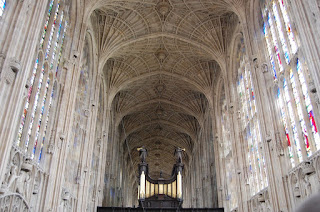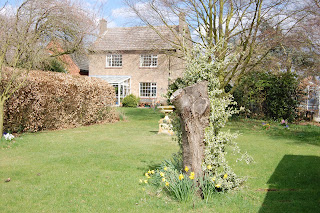Spring, though very late, has finally arrived in southern England. I took these photos at my daughter's house just north of Cambridge.

This is an example of the Imperial Fritillary, probably the most glorious of spring bulbs.
I was in my daughter's kitchen and I noticed this delightful orchid sitting on the window sill. I looked around and saw another nearby, this time a mauve orchid.
It is so easy to take reasonable close-ups with even simple digital camera these days.
The shot below is of the popular magnolia soulangena, a hybrid bred by a French cavalry officer in 1820. This glorious tree is very popular in the south of England.




















